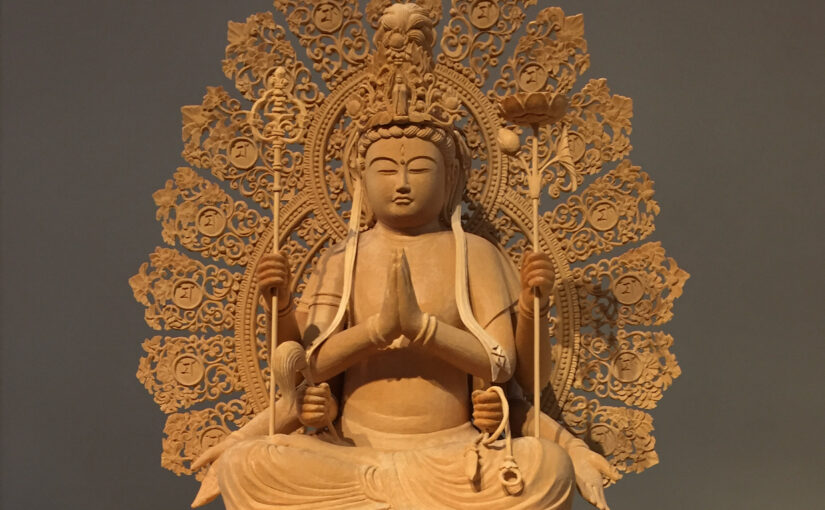An innovative way to pass Japan’s traditional arts and crafts on to the next generation
Buddha statue made by Ms. Nagasu of TASK: Photo by Author Akemi Sagawa
Traditional Arts Super College of Kyoto, TASK for short… Not only its name but the 10 courses it offers are also unique.
They are:
ceramics, wood carving, Buddha engraving, woodcraft, Urushi (Japanese lacquer) craft, Makie lacquer work, metal craft, bamboo craft, Japanese paper craft, and Kyoto tegaki yuzen (kimono dyeing)
For centuries, people used to get trained in these arts and crafts through apprenticeship. At an early age, they would live with their master, and do menial jobs like cleaning and running errands for years before learning the respective skills. Only after decades of training would they become master craftspeople.
Such apprenticeship, however, became harder to carry on. The compulsory education system in the modern days doesn’t allow kids to start early. Young people don’t have enough patience to go through such rigorous years. Many master craftspeople are getting old with nobody to take over. Once the master is deceased, the craft is forever gone.
In order to preserve traditional craftsmanship and pass it on to future generations, there should be an innovation on how to train people. TASK was the solution.
When I learned out TASK, I was determined that Five Senses Foundation* should focus on supporting TASK.
*Five Senses Foundation is a non-profit organization that I founded. Its mission is to promote Japan’s traditional culture in the US.
